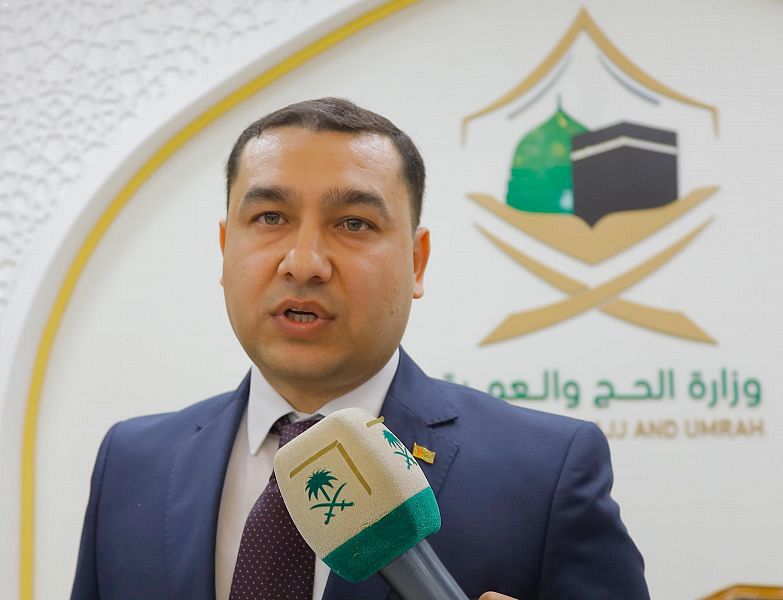
Philippine leader urges state auditors to reconsider decision against diversion of funds
MANILA: Philippines President Rodrigo Duterte has defended the use of Marawi rehabilitation funds to sponsor Hajj for displaced residents of the former besieged city.
Citing the importance of the Makkah pilgrimage for Muslims, Duterte expressed his support for the idea which he described as an “investment in peace.”
State auditors had flagged the Housing and Urban Development Coordinating Council (HUDCC) for diverting P5 million (SR360,000) from a P500 million fund, allotted by the Office of the President for the reconstruction of Marawi, to send some residents to Hajj last year.
The fund had been allocated as an operational budget for the Task Force Bangon Marawi (TFBM) — an interagency body created to facilitate recovery, reconstruction, and rehabilitation of the city after it suffered massive devastation during a five-month battle between Daesh-inspired groups and government forces in 2017.
In a speech on Thursday, during Eid Al-Fitr celebrations in his home city of Davao, Duterte appealed to the Commission on Audit (COA) to reconsider its decision disallowing the use of the P5 million to pay for the 2018 pilgrimage to Makkah.
“I am asking the COA to reconsider. What is 5 million? Actually that 5 million is worth billions in terms of your generosity, to finance the poor people, Muslims, to go for Hajj,” said Duterte, noting that the religious pilgrimage is more important to Muslims than government housing efforts.
“You can forget about the housing (in Marawi) being planned by the government. To the individual Muslim believer, five mansions is nothing compared to a simple token of generosity that will allow them to perform Hajj. That’s more important,” the president added.
Duterte asked how the diversion of the P5 million could be illegal when P15 million annually was set aside for the Makkah journey. “If you can understand the (Muslim) culture, then we’d have less friction in society,” said Duterte.
The president also said that he had been supporting poor Muslim Filipino pilgrims since he was mayor of Davao City, and that the sponsorship continued under the patronage of his daughter who is current mayor of Davao.
In his appeal to the COA, Duterte said: “It’s not financing of a religious journey. Do not take it in that sense, that there is a separation of church and state. Take it as a pacification campaign.
“You want peace? All of you, you want peace … Filipinos, you want peace? Let us invest in peace. Spend for it. You’re not buying it; you’re helping your fellow Filipino who is a follower of Islam. Let us invest in peace.”
The HUDCC chair, Eduardo Del Rosario, who also heads the TFBM, defended the release of the P5 million to the National Commission on Muslim Filipinos (NCMF), saying that it “was part of the social healing process in the overall rehabilitation of Marawi. In 2018, we sponsored 27 IDPs (internally displaced persons) who were then living in the evacuation centers and transitional shelter to go for Hajj,” he said, adding that a raffle was drawn in front of the evacuees and the names of those picked were immediately announced.
The NCMF’s task is to facilitate the processing of travel documents, and the payment of air fares and lodgings for those traveling to Saudi Arabia for a month.
“Hajj is a solemn obligation and a fervent wish of every Muslim. It is so important to them that social healing is envisioned in the process,” Del Rosario said.
“Besides, the funds that were used came from the President’s Social Fund and not from the funds appropriated by Congress,” he added.
NCMF spokesperson Dr. Dumapuno Alonto-Datu Ramos Jr., told Arab News that the diversion of the funds was done in good faith. He said another P6.4 million was used this year by the HUDCC for another raffle of 32 IDPs in Marawi City.
“If this doesn’t push through, it would be unfair for those IDPs who were picked for the free Hajj. We are hoping that this project will push through because this is a part of the social healing program of the TFBM,” the spokesman added.
“With their prolonged suffering, the raffles were a way to ease their misery and sadness for what happened to Marawi.”
Potre Dirempatan-Diampuan, trustee of the Manila-based Global Council of United Religions Initiative, and whose house in Marawi was destroyed during the siege, told Arab News that many IDPs, especially those living in evacuation centers, had been clamoring to return home.
But she said: “When people have been reduced to below poverty or just a notch higher than a beggar, anything is welcome.” She noted that many Marawi IDPs had been living in a tented city and to be chosen to perform Hajj under the sponsorship of the government was “a blessing, a gift. It’s a breather, it’s a relief.”







